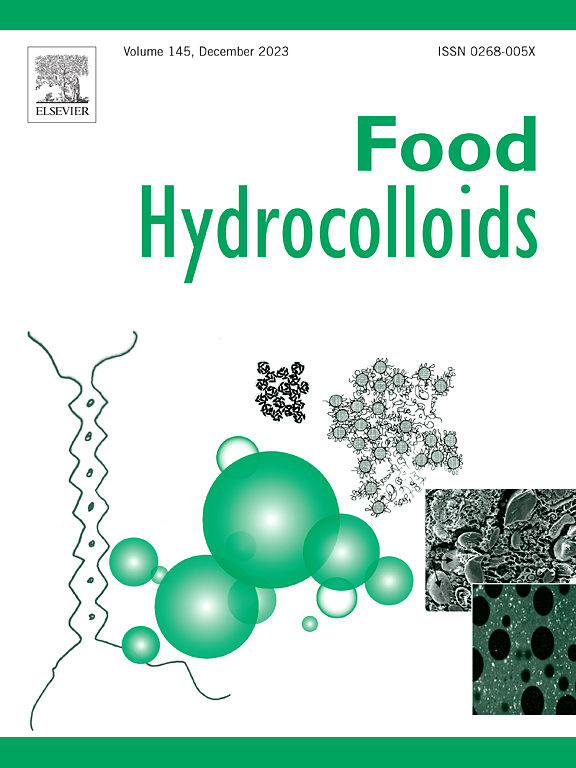Study on the effect of heat treatment process on the quality characteristics of soybean-Citri Reticulatae Pericarpium (CRP) based yogurt and related mechanisms
IF 11
1区 农林科学
Q1 CHEMISTRY, APPLIED
引用次数: 0
Abstract
To improve the quality of soy yogurt, three different heat treatment methods were studied for the preparation of soybean-Citri Reticulatae Pericarpium (CRP) based yogurt. This study investigated the effects of dry steaming (DS), baking-blanching (BB), and wet steaming (WS) on the physicochemical properties, texture, and flavor of yogurt, and explored the mechanism of affecting yogurt gel properties. At a solid-liquid ratio of 1:7, yogurts exhibited superior textural properties. GC-MS analysis revealed that all treatments effectively reduced the flavor components of beany, and CRP imparted dominant lemon and citrus aromas to yogurt. The yogurt produced by DS and WS treatment showed higher viscoelasticity and water stability. The results of fluorescence spectroscopy, FTIR, and SDS-PAGE indicated that DS treatment significantly unfolded the tertiary structure of proteins, making them more susceptible to enzymatic hydrolysis, leading to a higher proportion of disordered secondary structures and an increase in acidity of yogurt. The WS treatment produced yogurt showed the highest levels of α-helix and β-sheet structures, contributing to a gel system with enhanced stability. Analysis of intermolecular forces showed that the samples treated with DS had stronger hydrophobic interactions, while treatment with WS resulted in a higher content of disulfide bonds in yogurt to improve gel stability. Microstructure analysis demonstrated that the gel network of samples produced by the WS treatment was tighter, whereas yogurts produced by the other two treatments were less stable due to fat aggregates. This study provided critical technical support and theoretical foundations for improving the quality of soybean-based yogurt.

求助全文
约1分钟内获得全文
求助全文
来源期刊

Food Hydrocolloids
工程技术-食品科技
CiteScore
19.90
自引率
14.00%
发文量
871
审稿时长
37 days
期刊介绍:
Food Hydrocolloids publishes original and innovative research focused on the characterization, functional properties, and applications of hydrocolloid materials used in food products. These hydrocolloids, defined as polysaccharides and proteins of commercial importance, are added to control aspects such as texture, stability, rheology, and sensory properties. The research's primary emphasis should be on the hydrocolloids themselves, with thorough descriptions of their source, nature, and physicochemical characteristics. Manuscripts are expected to clearly outline specific aims and objectives, include a fundamental discussion of research findings at the molecular level, and address the significance of the results. Studies on hydrocolloids in complex formulations should concentrate on their overall properties and mechanisms of action, while simple formulation development studies may not be considered for publication.
The main areas of interest are:
-Chemical and physicochemical characterisation
Thermal properties including glass transitions and conformational changes-
Rheological properties including viscosity, viscoelastic properties and gelation behaviour-
The influence on organoleptic properties-
Interfacial properties including stabilisation of dispersions, emulsions and foams-
Film forming properties with application to edible films and active packaging-
Encapsulation and controlled release of active compounds-
The influence on health including their role as dietary fibre-
Manipulation of hydrocolloid structure and functionality through chemical, biochemical and physical processes-
New hydrocolloids and hydrocolloid sources of commercial potential.
The Journal also publishes Review articles that provide an overview of the latest developments in topics of specific interest to researchers in this field of activity.
 求助内容:
求助内容: 应助结果提醒方式:
应助结果提醒方式:


